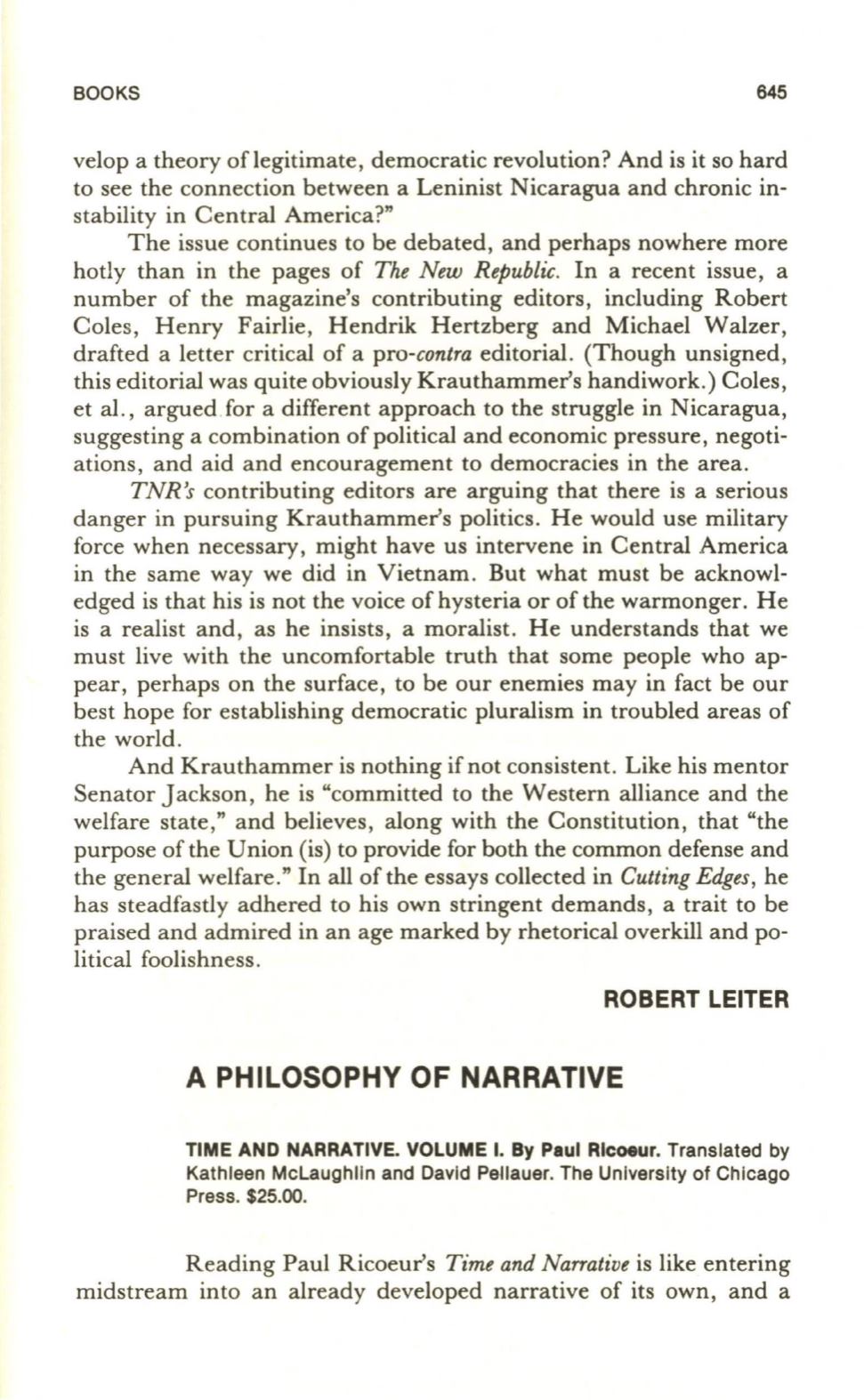
BOOKS
645
velop a theory oflegitimate, democratic revolution? And is it so hard
to see the connection between a Leninist Nicaragua and chronic in–
stability in Central America?"
The issue continues to be debated, and perhaps nowhere more
hotly than in the pages of
The New Republic.
In a recent issue, a
number of the magazine's contributing editors, including Robert
Coles, Henry Fairlie, Hendrik Hertzberg and Michael Walzer,
drafted a letter critical of a
pro-contra
editorial. (Though unsigned,
this editorial was quite obviously Krauthammer's handiwork.) Coles,
et aI., arguedJor a different approach to the struggle in Nicaragua,
suggesting a combination of political and economic pressure, negoti–
ations , and aid and encouragement to democracies in the area.
TNR's
contributing editors are arguing that there is a serious
danger in pursuing Krauthammer's politics . He would use military
force when necessary, might have us intervene in Central America
in the same way we did in Vietnam. But what must be acknowl–
edged is that his is not the voice of hysteria or of the warmonger. He
is a realist and, as he insists, a moralist. He understands that we
must live with the uncomfortable truth that some people who ap–
pear, perhaps on the surface, to be our enemies may in fact be our
best hope for establishing democratic pluralism in troubled areas of
the world .
And Krauthammer is nothing if not consistent. Like his mentor
Senator Jackson, he is "committed to the Western alliance and the
welfare state ," and believes, along with the Constitution, that "the
purpose of the Union (is) to provide for both the common defense and
the general welfare ." In all ofthe essays collected in
Cutting Edges,
he
has steadfastly adhered to his own stringent demands, a trait to be
praised and admired in an age marked by rhetorical overkill and po–
litical foolishness.
ROBERT LEITER
A PHILOSOPHY OF NARRATIVE
TIME AND NARRATIVE. VOLUME I.
By
Paul Rlcoeur.
Translated by
Kathleen McLaughlin and David Pellauer. The University of Chicago
Press. $25.00.
Reading Paul Ricoeur's
Time and Narrative
is like entering
midstream into an already developed narrative of its own, and a


